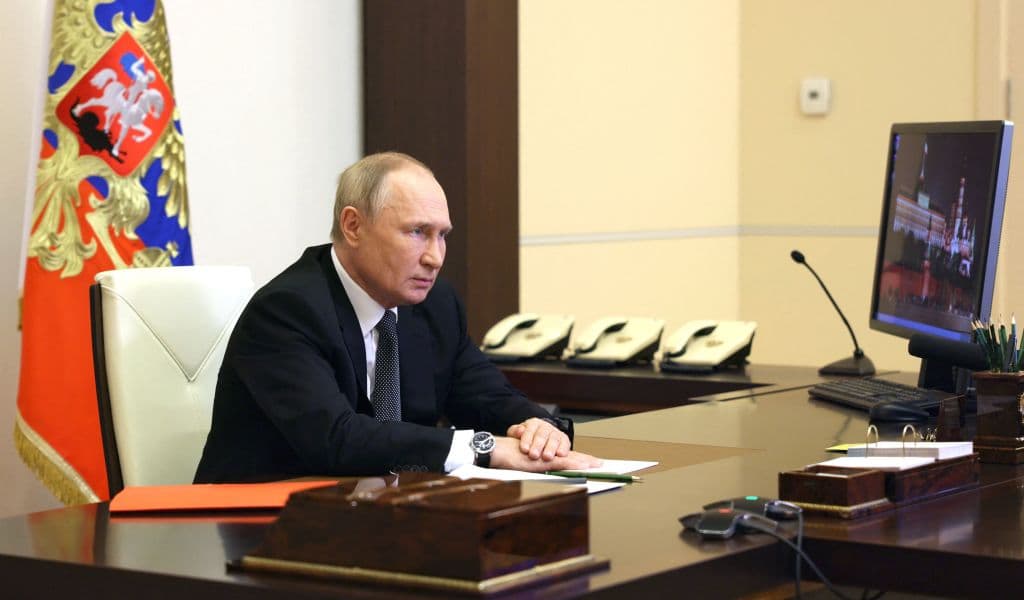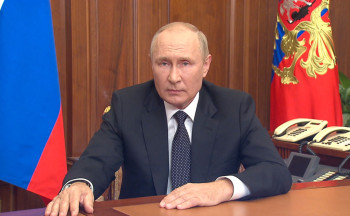Putin 'imposes' martial law in occupied areas of Ukraine to give proxies more power

Russian dictator Vladimir Putin signed a "decree" on Oct. 19 "imposing" martial law in occupied areas of Donetsk, Luhansk, Kherson, and Zaporizhzhia oblasts, following Russia's sham "referendums" there.
According to the Russian state-controlled news agency RIA Novosti, it will "come into effect" on Oct. 20. "Heads of regions will be given additional powers to ensure security," Putin said during a Security Council meeting on Oct. 19.
According to the decree signed by Putin, proxies in the occupied Ukrainian territories will be able to tighten their control over public transport and critical infrastructure facilities, as well as to ban people from leaving.
The decree also says that Russian forces will be able to relocate or deport the residents of the occupied territories.
In response to Putin's announcement, Mykhailo Podolyak, an advisor to the President's Office, said that it "does not change anything" for Ukraine. "This 'martial law' should be considered only as a pseudo-legalization of looting of Ukrainians' property," Podolyak said.
Russia might need martial law in the occupied territories of Ukraine to stop men from leaving, LRT reported back on Sept. 26, citing Lithuania's Defense Minister Arvydas Anusauskas. At about the same time, Russian media Verstka reported, citing its unnamed sources, that Russia was considering imposing martial law "if Ukraine continues to attack" occupied territories that Russia plans to illegally annex after holding sham referendums.
Russia's proxies held sham referendums in the occupied parts of these regions in late September. They declared nearly 100% of people living in the occupied territories of Ukraine "voted" to join Russia.
On Sept. 30, during a ceremony in the Grand Kremlin Palace, Putin announced that Russia is annexing Ukraine's Zaporizhzhia, Donetsk, Luhansk, and Kherson oblasts.











